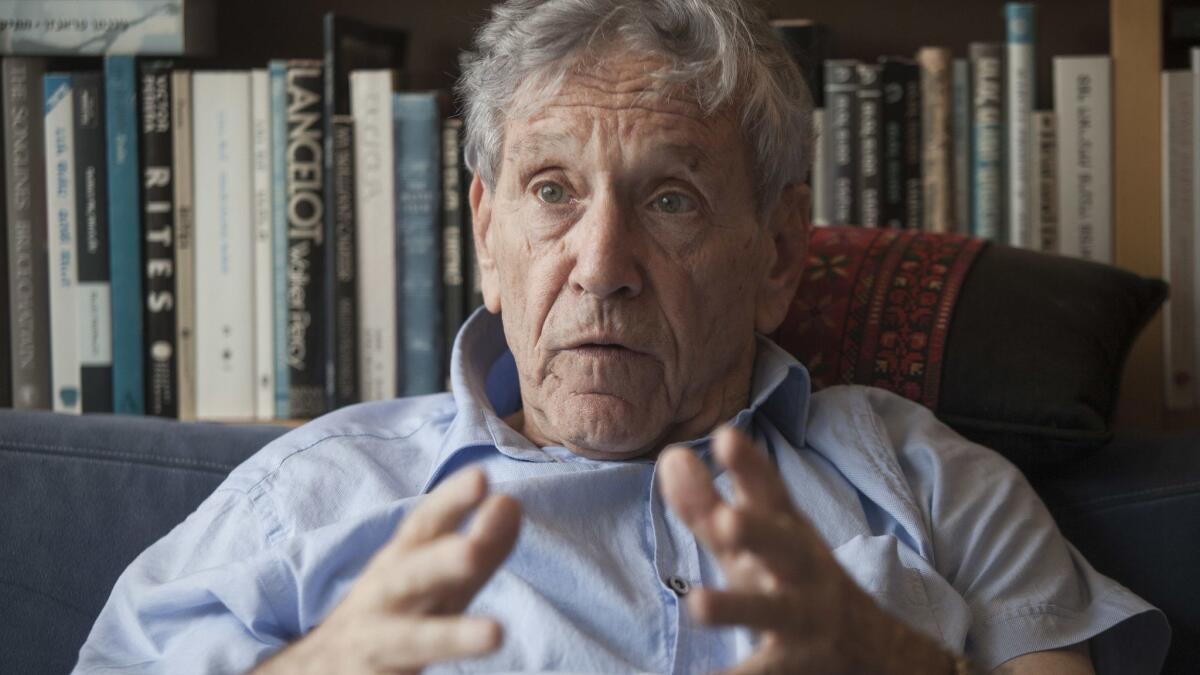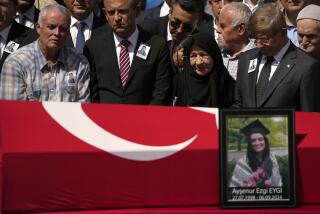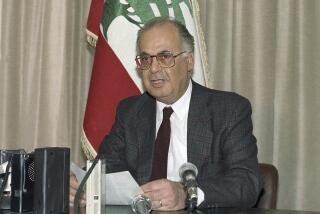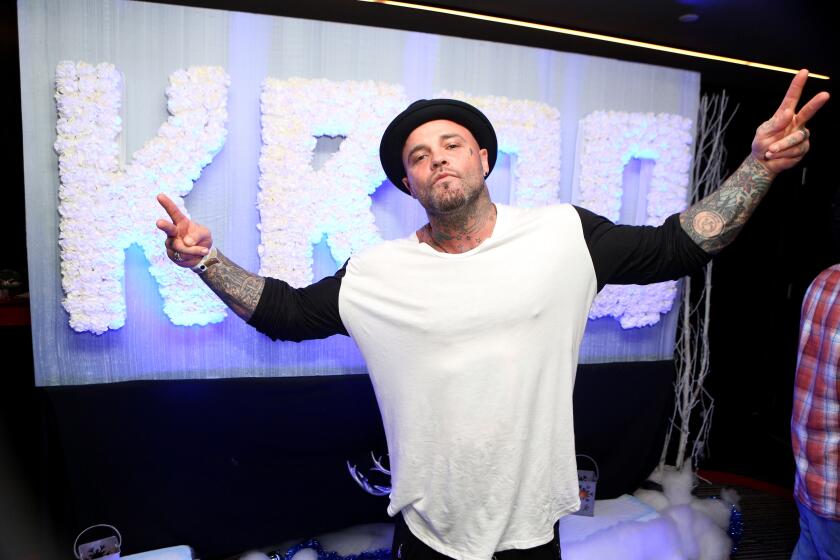Amos Oz, Israeli novelist and peace advocate, dies at 79

Amos Oz, one of Israel’s most celebrated and prolific authors, who came to embody the young state’s literary spirit and preoccupations, died Friday in Tel Aviv. He was 79 and had been fighting cancer.
His daughter, Fania Oz-Salzberger, announced his death in a tweet in which, like many Israelis, she gave an equal measure of importance to his accomplishments as an activist for peace as to his dozens of widely read books.
Oz is best known for “A Tale of Love and Darkness,” a memoir of his hardscrabble youth in a materially impoverished Jerusalem, where he was born May 4, 1939, just as the British Mandate was winding down and the incipient state of Israel was in its first throes. The book was brought to the screen in 2015 in Natalie Portman’s debut as a director.
Oz’s parents, educated, multilingual escapees of anti-Jewish violence in Eastern Europe, struggled to find stability and purpose in the mid-century upheaval.
At 14 he left Jerusalem and his parents’ right-wing political milieu to re-create himself in the image of the upstart new state, moving to Kibbutz Hulda, where he devoted his days to manual labor and changed his name from Klausner to Oz, a word meaning strength in Hebrew.
As he was about to publish his first book, Oz married Nily Zuckerman, the daughter of the kibbutz’s librarian.
His mother, also named Fania, committed suicide when Oz was only 12, a crushing blow that was first revealed in “A Tale of Love and Darkness.”
Oz’s daughter, a philosophy professor, described her father as “a wonderful family man, an author, a man of peace and moderation,” concluding with the hope that “his good legacy continue to amend the world.”
His handsome, stalwart face photographed against the rustic background of barns or hay became the image of Israel as his works were translated into more than 45 languages, and as his voice gained weight in the country’s public sphere.
He was, he said in an interview, “fanatically moderate,” decrying a worldview that equated extremism with passion or masculinity with militarized men.
His last book, “Dear Zealots: Letters from a Divided Land,” a collection of essays published in English last month, is a wry but unflinching look at the rise of inflexible dogmatism in Israel and around the world.
Oz, a founder of Peace Now, the Israeli anti-war organization, was among the first Israelis to publicly oppose occupation of territories won from Jordan in the 1967 Six-Day War, stating that “even unavoidable occupation is corrupting occupation.”
In an interview with German television in April, Oz advocated for “every country in the world [to] follow President Trump and move its embassy in Israel to Jerusalem. At the same time, each one of those countries ought to open its own embassy in East Jerusalem as the capital of the Palestinian people.”
During his long career, Oz won some of the literary world’s most prestigious honors, including the Goethe Prize and the French Knight’s Cross of the Legion D’Honneur. He was a perennial candidate for the Nobel Prize in literature.
Prime Minister Benjamin Netanyahu acknowledged Oz in a statement issued as he landed in Brazil, where he is scheduled to attend the presidential inauguration of Jair Bolsonaro on Monday.
“Although our opinions differed on many issues,” Netanyahu wrote, “I deeply appreciated his contribution to the Hebrew language and to the revival of Hebrew literature.”
The president of Israel, Reuven Rivlin, eulogized Oz as “a great spirit.”
The European Union issued a statement “mourning the passing of Amos Oz, a wonderful Israeli poet and novelist, a towering voice for peace.”
Oz is survived by his wife, Nily Zuckerman, and their three children, Fania, Galia and Daniel.
More to Read
Start your day right
Sign up for Essential California for the L.A. Times biggest news, features and recommendations in your inbox six days a week.
You may occasionally receive promotional content from the Los Angeles Times.






